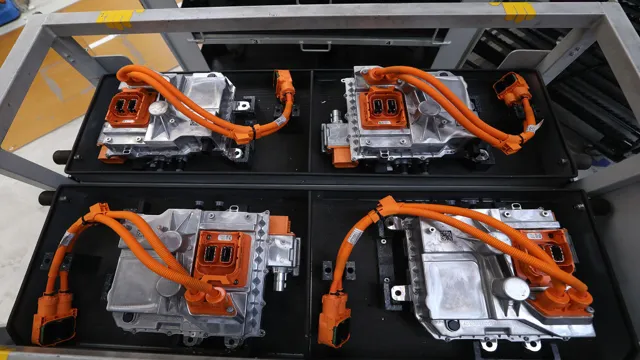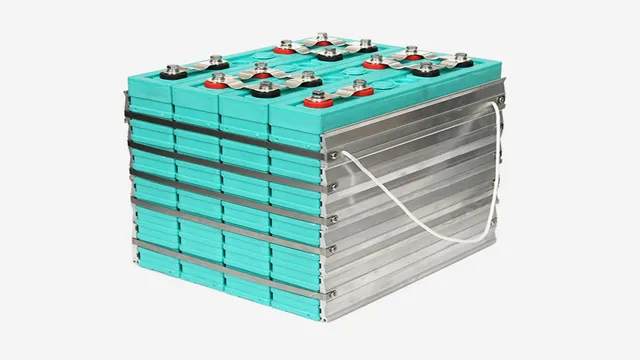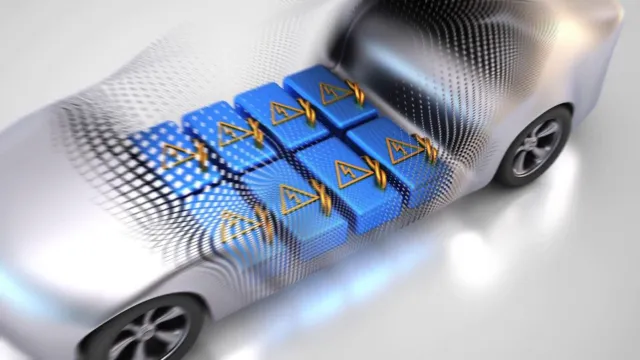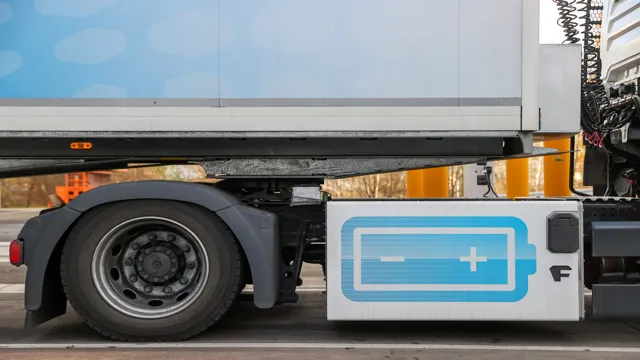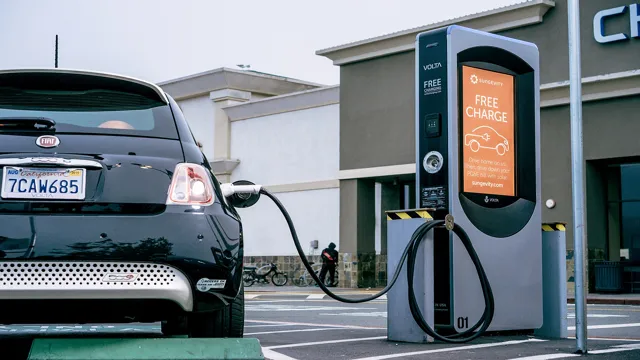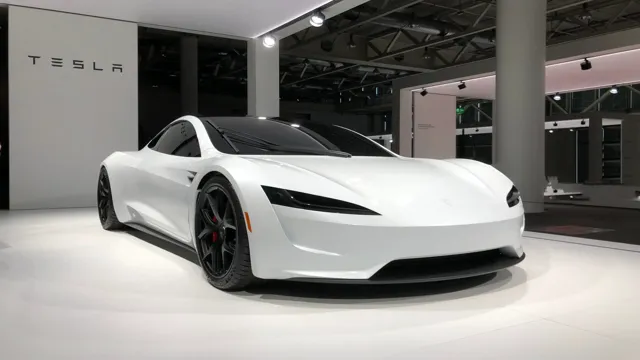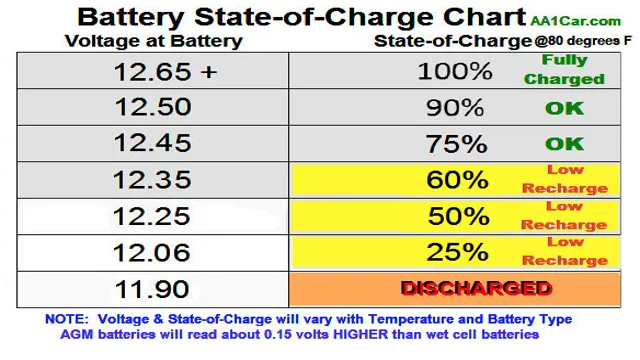Revolutionizing the Way We Drive: A Comprehensive Guide to Electric Car Battery Specifications
Electric cars have become increasingly popular in recent years as a result of their efficiency and being eco-friendly. The central aspect of any electric car is its battery, which is responsible for powering the vehicle. The battery is essentially the heart of an electric car, and it determines its range, charging time, weight, and price.
Electric car batteries have specific specifications that determine their quality and performance. The battery system consists of several lithium-ion cells, which store and supply electricity as needed. They are like a bank of small batteries that work together to power the electric vehicle.
Battery specifications such as capacity, voltage, and type are crucial in determining several aspects of the electric car. Their overall result is to determine the car’s efficiency, operating range, and overall performance. Knowing about Electric car battery specifications can help consumers make informed decisions when buying an electric car.
In this blog, we will take a closer look at electric car battery specifications and their importance in electric cars.
What is an Electric Car Battery?
When it comes to electric cars, the battery is at the heart of the vehicle. An electric car battery is a large and complex piece of equipment that powers the vehicle and stores energy for later use. The battery specification includes several important factors such as the capacity, voltage, and chemistry.
Capacity is the amount of energy that can be stored in the battery, while voltage refers to the amount of electric potential energy available to drive the car’s motor. Finally, the battery chemistry is the composition of the materials used to create the battery, which can affect factors such as efficiency, weight, and cost. With all these factors in mind, choosing the right electric car battery is a crucial decision that can have a big impact on the performance and overall experience of the vehicle.
So, the next time you hear someone talking about the battery specification of an electric car, you’ll know what they’re referring to!
A brief introduction to electric car batteries
Electric car batteries are a crucial component of electric vehicles as they provide the power needed to operate the car’s electric motor. An electric car battery is essentially a rechargeable lithium-ion battery pack that is designed to store electrical energy to power the vehicle. These batteries are heavier and larger than conventional car batteries, and they have a higher capacity to store energy.
The key benefit of electric car batteries is that they can be recharged multiple times, making them more sustainable and environmentally friendly than traditional gas-powered vehicles. They can also be charged quickly, allowing for faster and more convenient use. Overall, electric car batteries are at the forefront of sustainable transportation technology, paving the way for a cleaner and greener future.
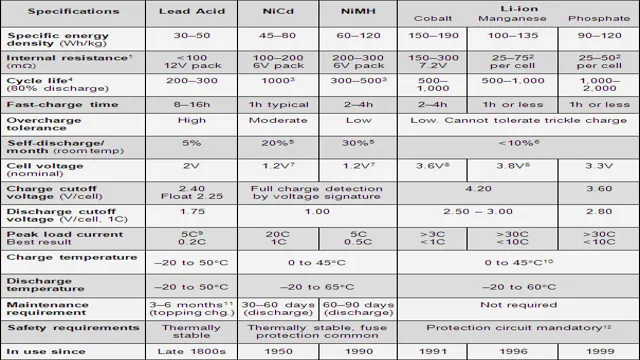
Battery Type
When it comes to electric car battery specification, one of the most important factors to consider is the type of battery being used. There are generally two types of batteries used in electric cars: lithium-ion and nickel-metal hydride. Lithium-ion batteries have become increasingly popular due to their high energy density and long lifespan.
They are also lighter and more efficient than nickel-metal hydride batteries. On the other hand, nickel-metal hydride batteries are more affordable and have been used in electric cars for a longer period of time. However, they are bulkier and have a shorter lifespan than lithium-ion batteries.
Ultimately, the choice of battery type will depend on factors such as cost, energy needs, and overall performance. It’s important to consider all of these factors when choosing an electric car battery, as it will have a significant impact on the overall efficiency and sustainability of the vehicle.
Differences between Lithium-ion and Lead-acid batteries
When it comes to choosing a battery type, two of the most common options are lithium-ion and lead-acid batteries. While both have their own advantages and disadvantages, the right choice largely depends on your specific needs. Lithium-ion batteries, for instance, are lighter and more compact, making them ideal for portable devices such as laptops and smartphones.
They also have a higher energy density, meaning they can store more energy in a smaller package. Additionally, lithium-ion batteries have a longer lifespan and require less maintenance compared to lead-acid batteries. On the other hand, lead-acid batteries are more affordable and have been around for much longer.
They’re also more robust and can handle higher current loads, making them ideal for use in vehicles such as cars and boats. Despite their lower energy density, lead-acid batteries can still deliver the same amount of power over a longer period of time as lithium-ion batteries. Ultimately, the choice of battery type depends on your specific needs and budget.
If you’re looking for a lightweight and durable option for your portable devices, then a lithium-ion battery may be the way to go. If you’re looking for a reliable and affordable option for your vehicles or stationary systems, then a lead-acid battery may be a better fit.
Advantages and disadvantages of each type of battery
When it comes to batteries, there are several types to choose from. Each has its own advantages and disadvantages. One type of battery is the lead-acid battery, which is very reliable and affordable.
However, it is quite heavy and has a relatively short lifespan. Another common type of battery is the lithium-ion battery. This type of battery is light, has a long lifespan, and is rechargeable.
However, it can be expensive and has been known to overheat. Finally, there is the nickel-cadmium battery, which is often used in power tools. This type of battery is reliable and rechargeable, but it is quite heavy and has a limited capacity.
In conclusion, when deciding on a battery, it’s essential to consider your needs and preferences. Each type of battery has its pros and cons, so it’s important to choose the one that best suits your requirements.
Battery Capacity
When it comes to electric cars, one of the crucial factors to consider is its battery capacity. The electric car battery specification is what determines the range that an electric vehicle can achieve. Generally, the higher the battery capacity, the greater the range of travel.
It is essential to look for an electric car with the right battery capacity based on your needs. If you mainly use your car for short commutes, a lower battery capacity will suffice. On the other hand, if you frequently travel long distances, you will need an electric car with a higher battery capacity.
It’s also worth noting that battery capacity can affect charging time, with a higher capacity battery typically taking longer to charge fully. Overall, the electric car battery specification is a fundamental aspect of choosing the right electric vehicle that meets your driving needs.
What is battery capacity and why is it important?
Battery Capacity When it comes to batteries, one of the most important factors to consider is capacity. Battery capacity refers to the amount of electrical charge that a battery can store and provide to power a device. It is typically measured in milliampere-hours (mAh) or ampere-hours (Ah).
The higher the capacity of a battery, the longer it will last before needing to be recharged. This is a crucial factor to consider when choosing a battery for your device, as it can greatly impact usability and convenience. For example, a low-capacity battery may require frequent recharging, while a high-capacity battery can last all day without needing to be charged.
So, when it comes to choosing a battery, make sure to consider its capacity to ensure that it meets your needs.
How is battery capacity measured?
Battery capacity is the amount of energy a battery can store, which is measured in ampere-hours (Ah) or milliampere-hours (mAh). Generally, the higher the capacity, the longer the battery will last before needing to be recharged. To measure the capacity, batteries are discharged at a constant rate until they are depleted, and the amount of energy used is calculated by measuring the current and voltage.
This process gives an accurate reading of the battery’s capacity, ensuring that it meets the manufacturer’s specifications. It’s important to note that battery capacity can vary depending on the usage, temperature, and age of the battery. So, it’s always a good idea to consider these factors before purchasing any batteries to ensure you’re getting the appropriate capacity for your needs.
Battery Life
When it comes to electric cars, understanding battery specifications is crucial in ensuring you get the most out of your vehicle. One important aspect of battery life is its capacity, which is measured in kilowatt-hours (kWh). The higher the capacity, the longer the range of your electric car.
Another crucial specification is the charging time, which can vary greatly depending on the charging method used. Fast-charging systems can charge your car battery up to 80% in just 30 minutes, while standard charging methods can take hours. It’s also important to consider the battery’s chemistry type, as this can impact its lifespan and performance.
Lithium-ion batteries are commonly used in electric cars due to their high energy density, but other types like nickel-metal hydride and solid-state batteries are emerging as potential alternatives. Understanding these specifications can help you make an informed decision when choosing an electric car and can ultimately lead to better battery life and overall vehicle performance.
Factors that affect battery life
Battery life is a crucial factor to consider when purchasing any electronic device that requires a battery to operate. There are several different factors that can affect the battery life of a device, such as the age of the battery, the type of battery used, and the way in which the device is being used. The age of the battery is important as a battery that has been in use for a long time will not be as efficient at holding a charge as a newer battery.
The type of battery used is also important as different types of batteries have different levels of durability and efficiency. Finally, the way in which the device is being used will also affect the battery life, as some tasks will require more power than others. By being aware of these different factors, users can take steps to maximize their device’s battery life and ensure that it lasts as long as possible.
How to extend the lifespan of your electric car battery
If you want to extend the lifespan of your electric car battery, there are a few things you can do to keep it running smoothly. One of the most important steps is to avoid frequently charging your battery to 100%. Instead, try to keep it between 20-80% to prevent stress on the cells.
You should also avoid exposing your battery to extreme temperatures, as this can cause damage and reduce its lifespan. Another helpful tip is to avoid fast charging your battery as much as possible, as this can also put additional strain on the cells. And lastly, make sure to keep up with regular maintenance and check-ups to ensure that your battery is functioning properly.
By taking these simple steps, you can help ensure that your electric car battery lasts as long as possible and continues to provide reliable performance.
Charging Time
When it comes to electric car battery specification, charging time is a crucial factor to consider. How long an electric car takes to charge can affect road trips and daily errands. The charging time depends on various factors such as the size of the battery, the charging infrastructure used, and the car’s charging capabilities.
For instance, a standard home electric outlet may take up to 24 hours to charge an electric car fully, while a Level 2 EV charger may take 4-6 hours. Meanwhile, fast-charging stations can charge an electric car up to 80% in just 30 minutes. The charging time also varies among car models, with some boasting faster charging capabilities than others.
It’s always essential to check the car’s battery specification and understand the charging time required to avoid getting stranded on the road. Overall, electric car battery specifications must consider efficient charging time for convenient and optimal use.
How long does it take to charge an electric car battery?
Electric cars are becoming increasingly popular due to their eco-friendliness and energy efficiency. However, one of the primary concerns of potential electric car owners is the charging time. The time it takes to charge an electric car battery is dependent on several factors, including the battery’s size, charging capacity, and the charging station’s power output.
Typically, charging an electric car battery can take anywhere between 30 minutes to 12 hours, depending on whether you’re using a standard 110V outlet or a dedicated DC fast-charging station. If you’re using a home charging station, it may take between 4 to 12 hours to charge your electric car fully. However, the charging time for electric car batteries is continually improving, with new developments in battery technology and more efficient charging stations.
As such, the future looks bright for electric car owners, and charging times will continue to decrease, making electric cars a more viable alternative to gasoline-powered cars.
Factors that affect charging time and how to speed up the process
Charging Time There are several factors that can affect the charging time of your devices, such as the type of charger you use, the capacity of your device’s battery, and the age of the battery. One way to speed up the charging process is to use a high-powered charger that is compatible with your device. You should also make sure that you’re using the correct cable for your device, as this can make a big difference in the charging speed.
Additionally, you can turn on airplane mode or switch off Wi-Fi, Bluetooth, and other features that might drain your battery while it charges. Another tip is to avoid using your device while it’s charging, as this can slow down the charging process. If you’re looking for a quick fix, you can also try turning off your device completely, as this can sometimes help to speed up the charging time.
With a little bit of patience and some smart charging habits, you can ensure that your devices are always powered up and ready to go.
Conclusion
In conclusion, when it comes to electric car battery specifications, size does matter! However, it’s not just about how big the battery is, but also about the chemistry and design of the battery cells. A high-quality electric car battery should deliver fast and efficient charging, long range, and reliable performance. So, remember to always check the specs before you buy, because as the saying goes, the devil is in the details – or in this case, the electrons!”
FAQs
What is the typical lifespan of an electric car battery?
The lifespan of an electric car battery varies depending on usage and maintenance, but most manufacturers offer warranties of 8-10 years or 100,000-150,000 miles.
How does the capacity of an electric car battery impact its range?
The capacity of an electric car battery directly affects its range – the higher the battery capacity, the greater the range the vehicle can travel on a single charge.
Can electric car batteries be charged at home?
Yes, most electric car batteries can be charged at home using a specially-designed home charging station or a standard electrical outlet.
Are there any environmental concerns associated with the production and disposal of electric car batteries?
Yes, the production and disposal of electric car batteries can pose environmental challenges, particularly in terms of resource extraction and recycling. However, many manufacturers are working to mitigate these concerns through sustainable practices and recycling initiatives.

